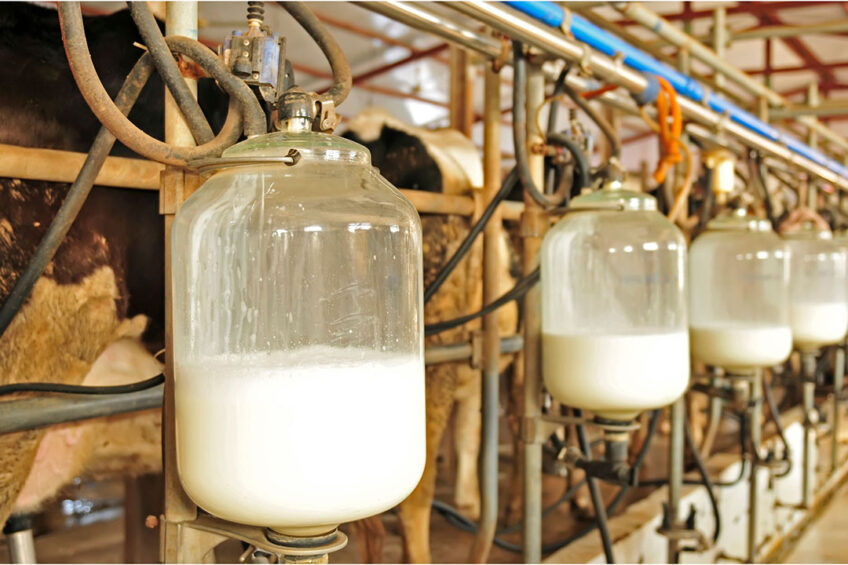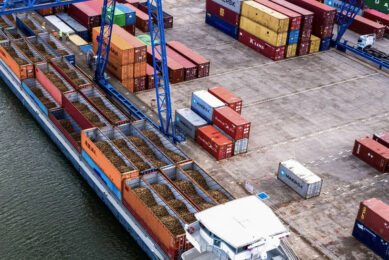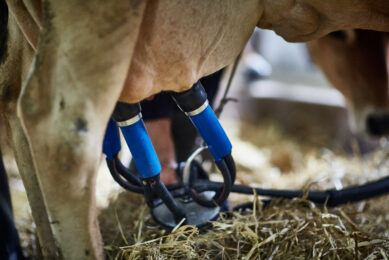Zooming in to Ukraine’s dairy industry

Ukraine is facing losing its dairy industry unless the European ban on dairy imports from the country is swiftly withdrawn, the Ukraine Union of dairy enterprises warned.
In 2022, Ukraine enjoyed a strong rise in dairy exports to the European Union, with supplies totalling US$102 million against only US$7 million in 2021. The European market was vital for Ukrainian dairy companies, which last year sold products worth US$344.6 million to foreign customers, 39% more compared with the previous year.
Ukrainian dairy products were exceptionally competitive on the European market during the summer and autumn seasons, commented Yana Linetskaya, an analyst for the Ukrainian association of dairy producers. In the fourth quarter, global prices of dairy products dropped, hampering revenue from foreign sales for the Ukrainian companies, she added.
The duty-free trade regime imposed on Ukrainian food imports by the European Commission in the first half of 2022 largely mitigated the impact of the Russian sea blockade. In 2022, the Ukrainian export of milk whey dropped by 31.3% to 15,300 tonnes, as the country used to export it, among some other dairy products, primarily to China by sea. Eventually, Ukrainian companies started to export dairy products destined for Asian markets through the seaports of Bulgaria and Romania, although this entailed a rise in logistics costs.
A domino effect
The European embargo proves to be quite painful for the Ukrainian dairy industry, which is also seeing demand on the domestic market plummet due to mass emigration and the falling purchasing power of the local population.
“If the actual lifting of the ban is delayed, Ukrainian dairy companies will reduce the volume of milk purchases because milk processing will lose its meaning without the prospect of export sales. Dairy processors are not ready to work only to fill warehouses,” the Ukraine union of dairy enterprises warned, adding that the problems in the processing segment will inevitably weigh heavily on the already troubled raw milk production.
“At the same time, milk farmers will be forced to lower the price for raw milk first, and when milk production becomes unprofitable, they will start to get rid of the livestock. This means we can lose the industry,” the union warned.
This domino effect could be particularly challenging for the Ukrainian dairy industry in the long run. The Ukrainian association of dairy producers estimated that the country lost 8-10% of milk cattle last year as a result of the hostilities.
The analysts voiced concerns that the dairy herd must be preserved at all costs, as milk processors can turn their capacities on and off whenever they want while growing a cow takes time. In the past few months, the Ukrainian meat processing industry has been battling a pork shortage, as numerous pig farms across the country were damaged or destroyed. The crisis has driven up farm-gate pig prices and accelerated inflation in the country.
The dairy business warns that if the Ukrainian herd of cows keeps shrinking, the milk processing industry will face similar challenges.
Mirror measures
With this backdrop, several Ukrainian dairy industry groups asked the government to consider imposing mirror restrictions against European imports. Moreover, some dairy companies believe that the authorities must design a system under which mirror actions would be triggered automatically in response to any restrictions Ukrainian food could be subjected to. The Ukraine union of dairy enterprises believes that such a system would prevent similar situations from happening.
Arsen Didur, executive director of the union, expressed an opinion that the mirror measures could prove to be effective given that the country imports from Europe more dairy products than exports. He disclosed that during the first quarter of 2023, Ukraine exported dairy products worth US$50.34 million, of which products for US$4.81 million landed in Poland.
On the other hand, Poland accounts for the lion’s share of Ukrainian dairy imports in almost all categories except butter and milk fat. For instance, Poland exported 3,360 tonnes of cheese to Ukraine for US$18.45 million in the first quarter of 2023.
“The union is disappointed with the result of the Ukrainian-Polish negotiations on the export and transit of Ukrainian agricultural products to Poland, under which transit is allowed, but an embargo is imposed on exports,” the union said in an appeal to the government.
No winners
In the meantime, the Polish dairy chamber, the country’s largest union of dairy manufacturers, has called on the authorities to drop the restrictions on Ukrainian dairy imports. According to Polish dairy businesses, while import restrictions on Ukrainian grain seem justified to prevent Polish farmers from suffering substantial losses, they don’t make any sense in the dairy market.
Since the beginning of 2023, Poland and several other countries in Eastern Europe have experienced a drop in wholesale prices in the grain, poultry, and milk market. Grain farmers, broiler meat and egg manufacturers complained about an inflow of cheap products from Ukraine, and the Polish Agricultural Ministry believed that the picture was similar in all segments of the food market. However, this was clearly a mistake.
“I do not agree that imports from the Ukrainian market may destabilise the Polish market,” said Waldemar Broś, head of the Polish national association of dairy cooperatives, adding that the slump in prices in the dairy industry is primarily associated with growing pressure from western, not eastern companies.
“Western Europe speculates on our markets with low prices,” agreed Gustaw Jędrejek, president of the Lublin Chamber of Agriculture, adding that as a result, farmgate prices of raw milk fall, which jeopardises the entire supply chain.
Paradoxically, the embargo on Ukrainian dairy imports will worsen the farmer’s predicament if the government applies mirror restrictions. In the end, nobody will win from the embargo, and dairy companies will suffer on both sides of the border. Broś said that if raw milk prices fall below the production cost level, some Polish farmers will have to curtail operations.
Join 13,000+ subscribers
Subscribe to our newsletter to stay updated about all the need-to-know content in the dairy sector, two times a week.










